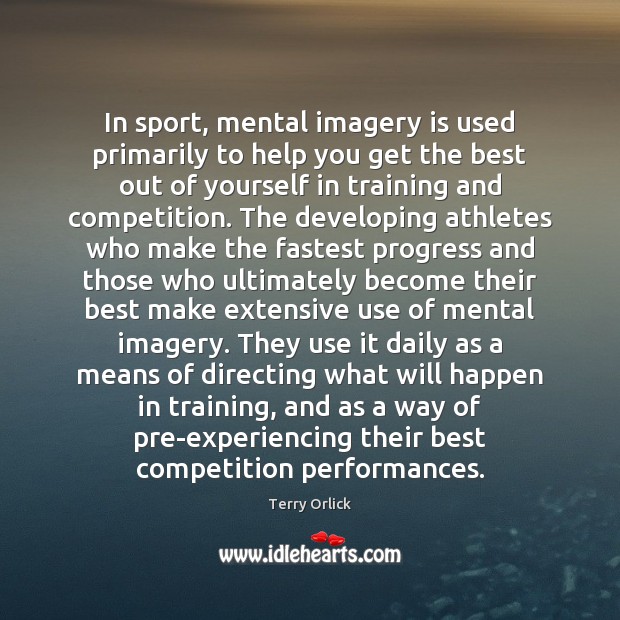Non dimentichiamo i migliori mentori che vi sono stati nella psicologia dello sport. Uno di questi, Terry Orlick, è scomparso di recente.
Qui sotto il suo pensiero sulla visualizzazione.
inside excellent life
Non dimentichiamo i migliori mentori che vi sono stati nella psicologia dello sport. Uno di questi, Terry Orlick, è scomparso di recente.
Qui sotto il suo pensiero sulla visualizzazione.

L’uso della mindfulness sembra essere una delle nuove strategie e tecniche per allenare mentalmente gli atleti a restare concentrati sul presente e sulla loro prestazione, anziché lasciarsi dominare dallo stress agonistico. Va detto che già 40 anni la meditazione trascendentale e lo zen erano descritte come modalità adatte allo sport. A questo riguardo, riporto quanto scritto da due tra gli psicologi dello sport che hanno fornito contributi significativi per innovazione ed efficacia.
Robert Nideffer nel 1976 nel libro “The inner athlete”:
“Trascendental meditation (TM) procedures can be helpful in improving an athlete’s general feeling of well-being as well as increasing his energy level and his ability to concentrate … they are very useful to athletes who engage in endurance events which require little in the way of external attention … keeps him from becoming locked into negative, self-defeating thoughts and feelings … most applicable in those competitive situations where an athlete’s responses require non thought, where movements have been learned so well that they have become automatic … complicated gymnastics routines or dives are often practiced to the point where they are almost reflexive” (p.179).
Terry Orlick nel 1980 nel libro “In pursuit of excellence”:
“Thinking is useful in many ways, but there some occasions when thinking interferes with the task and you have to leave it behind …
In such cases, you cease to be your own conscious master but become an instrument in the hands of the unknown. The unknown has no ego-consciousness and consequently no thought of winning the contest … it is for this reason that sword moves where it ought to move and makes the contest end victoriously. This is the practical application of the Lao-tzuan doctrine of doing by not doing” (p.146, corsivo è di Daisetz Suzuki, Zen and Japanese Culture).